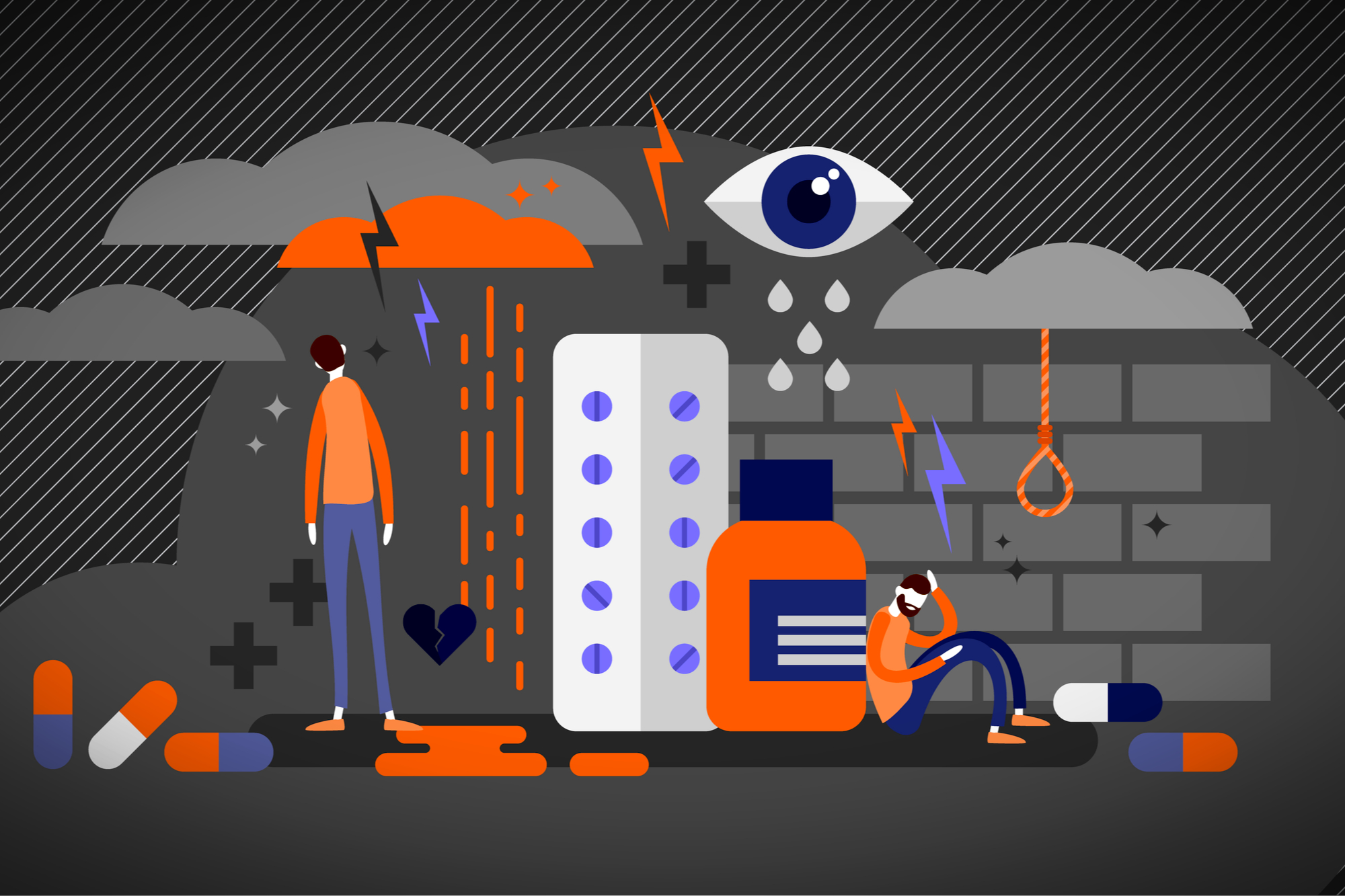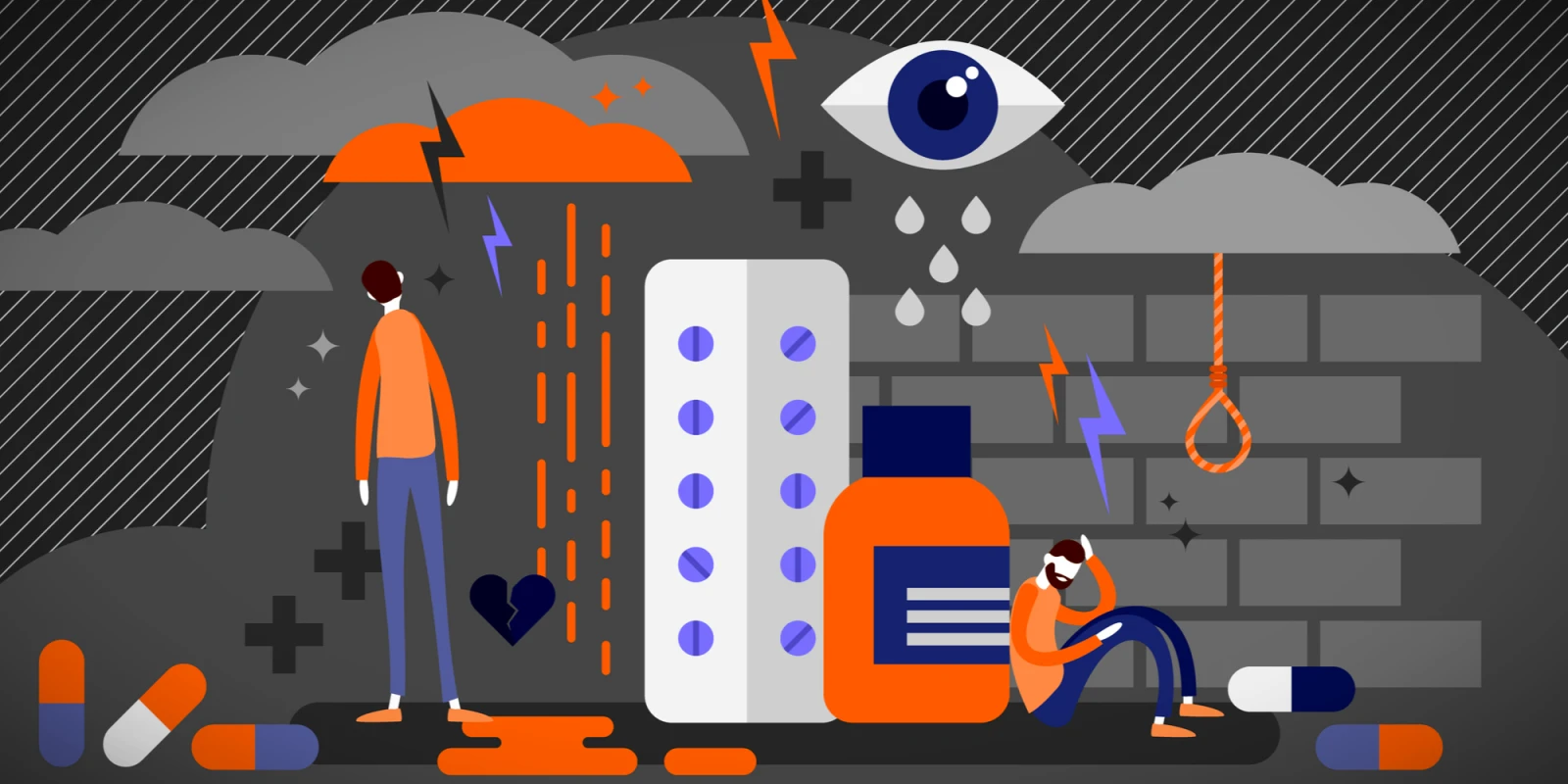 Last year, the University of Minnesota lost two medical students to suicide.
Last year, the University of Minnesota lost two medical students to suicide.
It was the end of a long day at the hospital when I received the news that a classmate had died. Within minutes, the text messages came in: “It could have been me." “I’ve thought about it, too." “One of us was bound to…” “Of course, this would happen to someone.” I was devastated, but not surprised. It seemed almost inevitable. Not more than a month later, however, I found myself in disbelief when another medical student died by suicide. Tragically, these deaths highlight that a career in medicine, while often rewarding and fulfilling, can also be extremely dangerous.
While mental health symptoms are frequently viewed as “personal” issues, it is becoming clear that many aspects of working in health care contribute to our risk of mental illness. Students entering medical school experience mental illness at the same rate as their non-medical peers; however, for each year we progress through training, our risk increases. As medical students, we are two to five times more likely to experience depression than our peers. As physicians, our risk of depression, substance abuse, and suicide will remain elevated for the rest of our careers. Similarly, other health care professionals including nurses, pharmacists, and medical assistants, face increased depression and suicide rates.
Medical culture notoriously lauds independence, stigmatizing those who show “weakness” by asking for help. The long hours spent away from our families, exhausting schedules that interrupt sleep patterns, immense documentation requirements, brief patient visits, and bearing witness to suffering all take a mental, emotional, physical, and spiritual toll. When this inevitably makes us ill, shame and stigma keep us from seeking the care we desperately need. The strength required to pursue recovery is rarely acknowledged or commended.
Additionally, physicians are often required to disclose mental health diagnoses on applications for hospital or clinic credentialing and state licensing. These standards vary by state, sometimes maintaining highly regressive and discriminatory practices. National physician groups, such as the American Medical Association, have described not only the futility, but also the harm of this practice. I personally know numerous medical trainees who are not seeking treatment out of fear of disclosure on future licensing applications. Simply put, the system is making us sick, and discriminatory practices are keeping us from seeking the care we need.
This caustic environment does not just affect health care providers; it affects everyone who interacts with and depends on them. It is estimated that one million patients lose their doctor to suicide annually. And the same aspects of our health care system that cause burnout and depression — inefficiency, depersonalization, and constant pressures to optimize productivity — contribute to unsatisfying and potentially unsafe patient experiences, along with worsening physician shortages and wasted health care spending.
There is no one good solution to the systemic issues that contribute to physician burnout and mental illness. Efforts to address these issues are in progress across the nation, but many are missing the mark. Initiatives that provide “resilience training,” for example, aim to improve individuals’ ability to adapt well and recover quickly. This training can send the message that the burden of responsibility lies on those impacted by the broken system rather than confronting the underlying cause of our stress: the current occupational hazards of our work. It would be absurd to attribute construction-related head injuries to workers whose skulls are not “resilient” enough to endure falling objects. Similarly, we should not place blame on medical professionals for the consequences of the potentially harmful conditions in which they work. Instead, the process of medical licensing and credentialing should view the acknowledgement of mental illness and the pursuit of recovery as a strength of its physicians, not a weakness.
As we near the anniversary of the events that shook the University of Minnesota Medical School community, we are reminded that depression and suicide are occupational hazards of the medical profession. Society relies on physicians to care for those who suffer, yet we train and work in a system that often silences our suffering. Unfortunately, many of the factors that contribute to physician burnout are deeply ingrained in our health care system and will require long-term concerted efforts to change.
That said, there are steps we can take now to address physician mental illness in our own communities.
Regardless of your level of training, position, and personal experiences with mental illness, I ask that you petition health care institutions and state licensing boards to reconsider the utility of requiring applicants to self-disclose a history of mental illnes, as well as incorporate education about personal mental health into medical school and residency curricula. And not just allow, but encourage trainees to meet with health care professionals during the course of their training. Most importantly, speak openly with peers and students about your own experiences with mental illness or treatment, the barriers you have faced, and what you learned along the way. By doing your part to combat stigma, you can help ensure that the practice of medicine remains a safe and fulfilling profession for generations to come.
Brianna Engelson, Sameena Ahmed-Buehler, and Jennifer Zick, PhD are fourth-year medical students at the University of Minnesota.
References:
1. Alderson, M., Parent-Rocheleau, X., & Mishara, B. (2015). Critical review on suicide among nurses. Crisis.
2. Brandford, A. A., & Reed, D. B. (2016). Depression in registered nurses: A state of the science. Workplace health & safety, 64(10), 488-511.
3. Bridgeman, P. J., Bridgeman, M. B., & Barone, J. (2018). Burnout syndrome among healthcare professionals. The Bulletin of the American Society of Hospital Pharmacists, 75(3), 147-152.
4. Fan, Z. J., Bonauto, D. K., Foley, M. P., Anderson, N. J., Yragui, N. L., & Silverstein, B. A. (2012). Occupation and the prevalence of current depression and frequent mental distress, WA BRFSS 2006 and 2008. American Journal of Industrial Medicine, 55(10), 893-903.
5. Federation of State Medical Boards Workgroup on Physician Wellness and Burnout. (2016, April). Physician Wellness and Burnout, Adopted as policy. Retrieved from AMA-ASSN.
6. Friganović, A., Kovačević, I., Ilić, B., Žulec, M., Krikšić, V., & Bile, C. G. (2017). Healthy settings in hospital--how to prevent burnout syndrome in nurses: literature review. Acta Clin Croat, 56(2), 292-298.
7. Jakubek, K. (2018, June 13). AMA adopts policy to improve physician access to mental health care. Retrieved from AMA-ASSN.
8. Peterson, C., Stone, D. M., Marsh, S. M., Schumacher, P. K., Tiesman, H. M., McIntosh, W. L., ... & Luo, F. (2018). Suicide rates by major occupational group—17 states, 2012 and 2015. Morbidity and Mortality Weekly Report, 67(45), 1253.
9. Rotenstein, L. S., Ramos, M. A., Torre, M., Segal, J. B., Peluso, M. J., Guille, C., … Mata, D. A. (2016). Prevalence of Depression, Depressive Symptoms, and Suicidal Ideation Among Medical Students: A Systematic Review and Meta-Analysis. JAMA: The Journal of the American Medical Association, 316(21), 2214–2236.
10. West, C. P., Dyrbye, L. N., & Shanafelt, T. D. (2018). Physician burnout: contributors, consequences and solutions. Journal of internal medicine, 283(6), 516-529.
11. Wible, S. (2019, April 13). Susan lost her doctor to suicide. She wants to know why. Retrieved from Ideal Medicine.
Brianna Engelson, Sameena Ahmed-Buehler, and Jennifer Zick, PhD are fourth-year medical students at the University of Minnesota.
Image by VectorMine / Shutterstock






